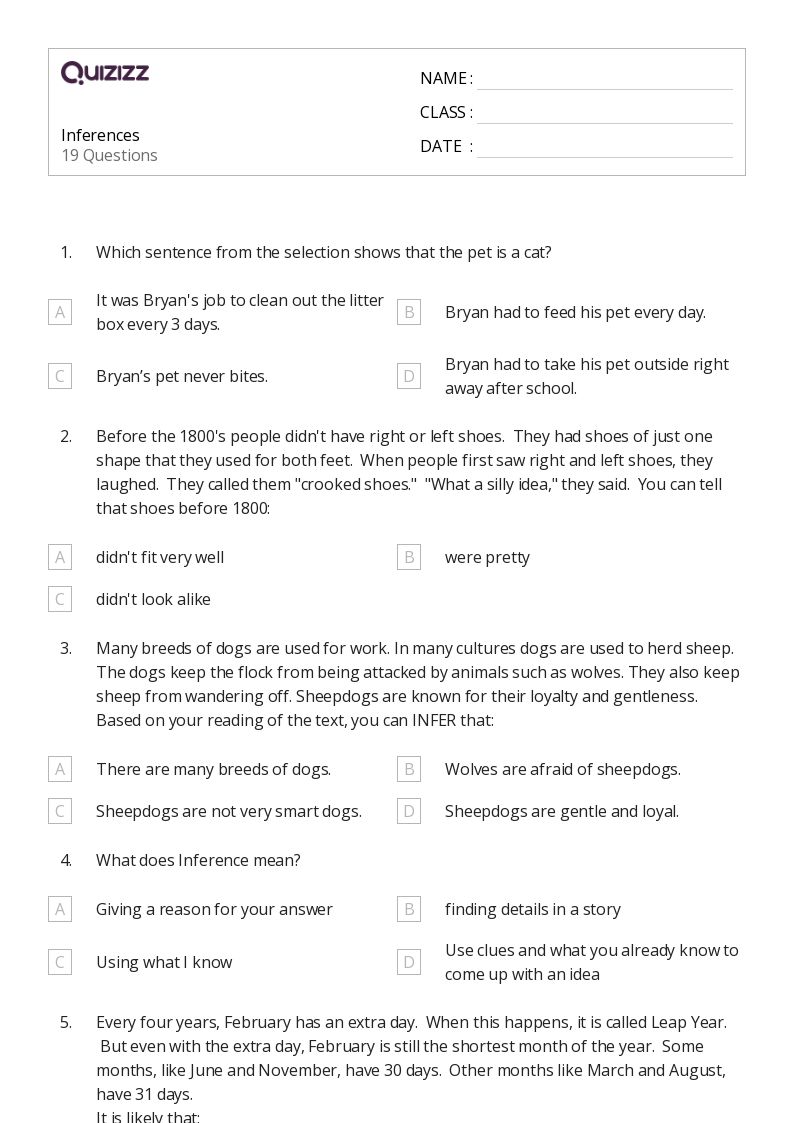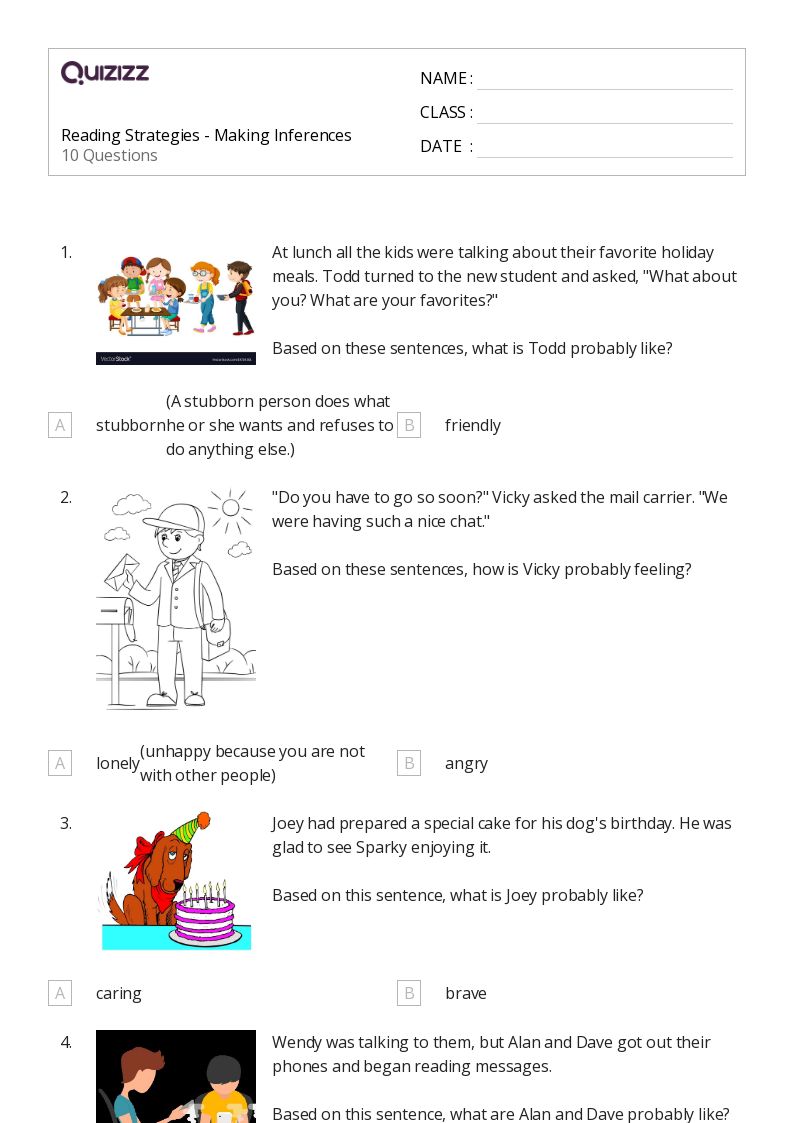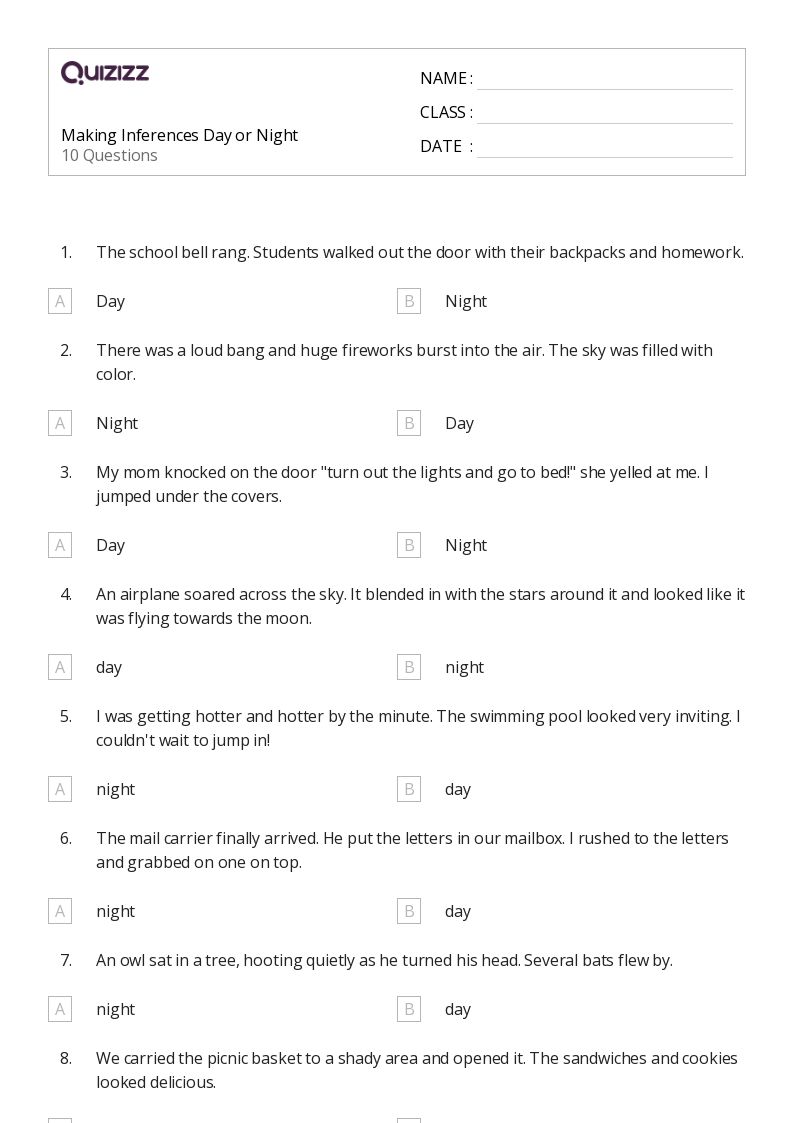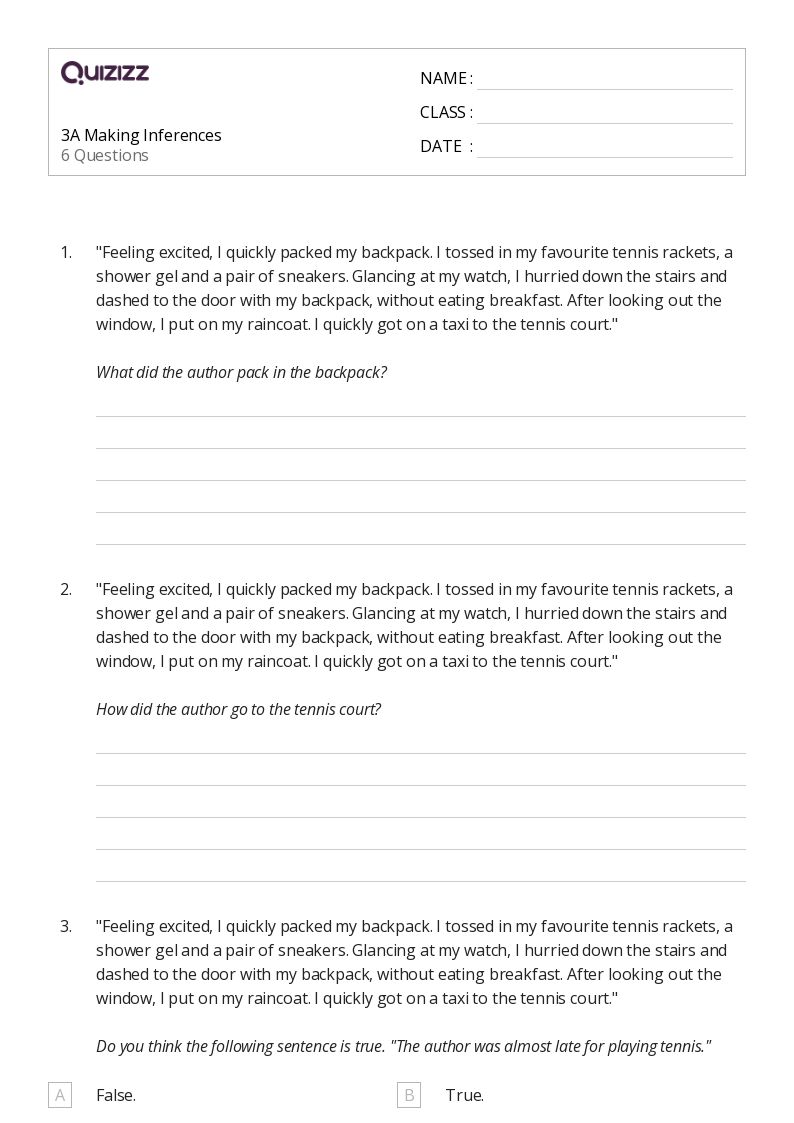
10 Q
3rd - 6th

10 Q
3rd - 4th

19 Q
3rd - 5th

16 Q
2nd - 3rd

7 Q
3rd

15 Q
3rd

20 Q
3rd

17 Q
3rd

10 Q
3rd

9 Q
3rd - 5th

8 Q
3rd

10 Q
1st - 3rd

10 Q
3rd

10 Q
3rd - 5th

10 Q
3rd - 6th

10 Q
3rd - 5th

18 Q
3rd

11 Q
3rd - 6th

10 Q
3rd

10 Q
3rd - 5th

12 Q
3rd - 5th

6 Q
3rd

10 Q
3rd - 6th
Explore Making Inferences in Nonfiction Worksheets by Grades
Explore Other Subject Worksheets for year 3
Explore printable Making Inferences in Nonfiction worksheets for 3rd Year
Making Inferences in Nonfiction worksheets for Year 3 are essential tools for teachers to help their students develop critical reading and writing skills. These worksheets focus on teaching students how to analyze and interpret information from nonfiction texts, which is a crucial aspect of reading comprehension strategies. By using these worksheets, teachers can guide their students in understanding the meaning behind the text, making connections, and drawing conclusions based on the information provided. This not only enhances their reading abilities but also improves their writing skills, as they learn to incorporate these inferences into their own work. With a strong foundation in reading comprehension strategies, Year 3 students will be better equipped to tackle more complex texts as they progress through their education. Making Inferences in Nonfiction worksheets for Year 3 are a valuable resource for teachers looking to improve their students' reading and writing abilities.
Quizizz is an excellent platform for teachers to incorporate Making Inferences in Nonfiction worksheets for Year 3, along with other engaging educational resources. This interactive platform offers a variety of quizzes, games, and activities that can be tailored to suit the needs of each individual student. By integrating these worksheets into Quizizz, teachers can create a more dynamic and interactive learning experience for their students, reinforcing reading comprehension strategies and making inferences skills. Additionally, Quizizz provides teachers with real-time data on student performance, allowing them to identify areas where students may need additional support or practice. This comprehensive approach to teaching reading and writing ensures that Year 3 students are well-prepared for future academic challenges and fosters a lifelong love of learning.
